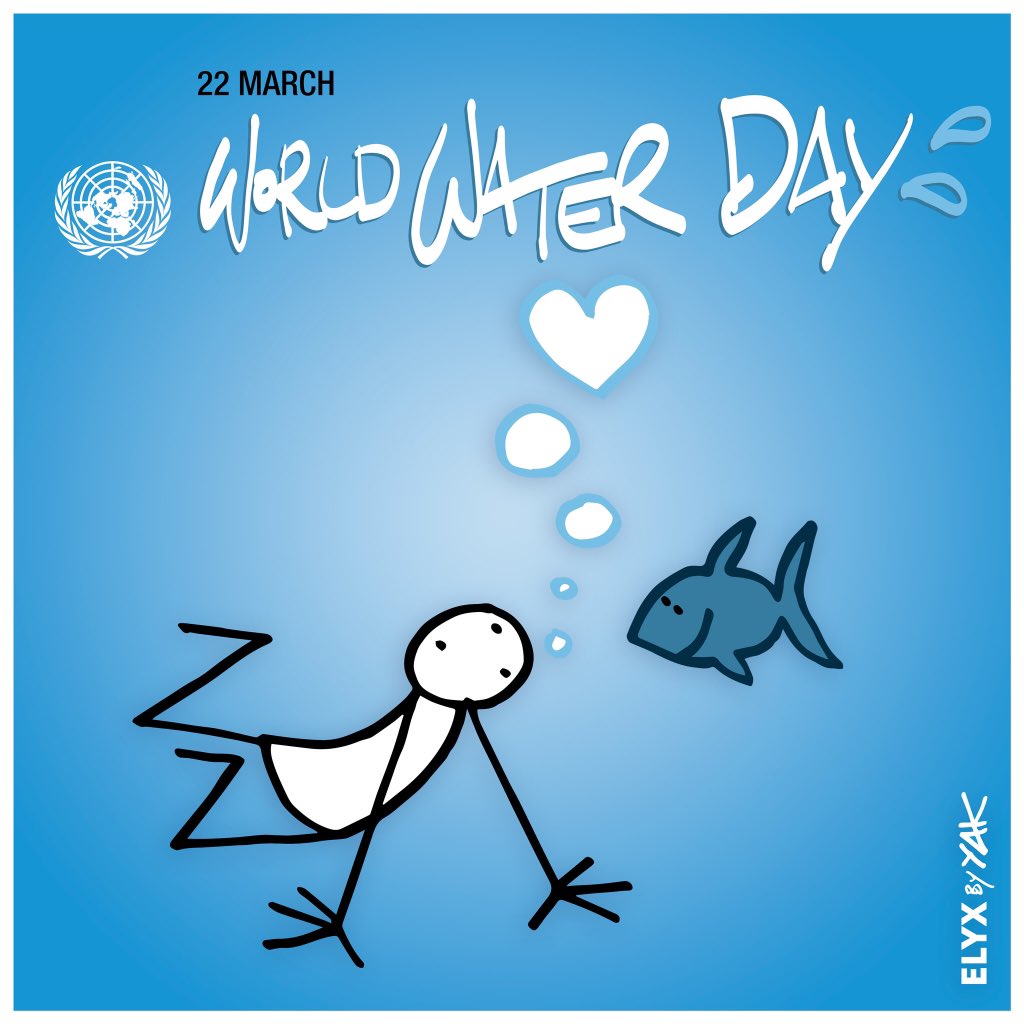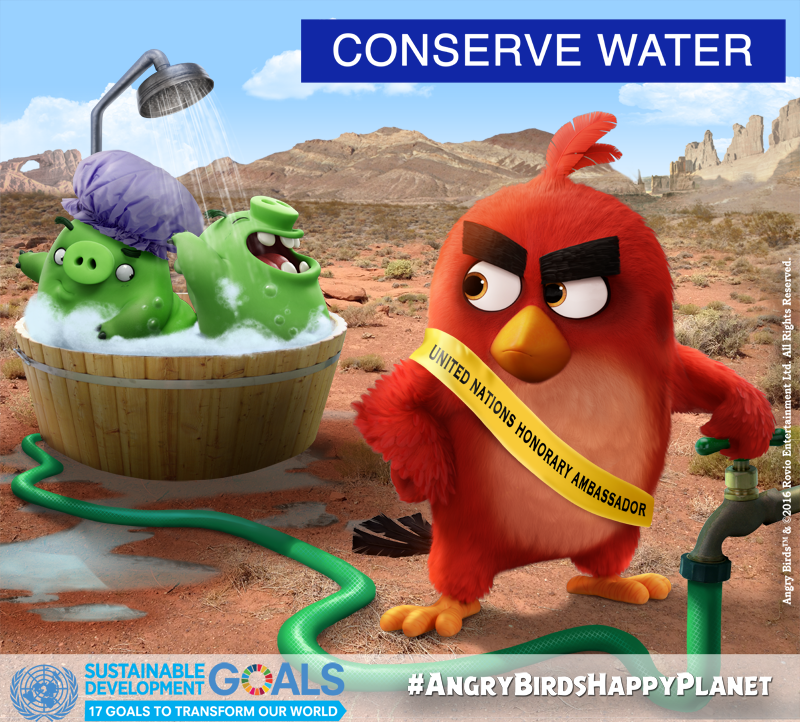World Water Day is observed on March 22 every year. A day to recognize the importance of earth's most precious natural resource was proposed 20 years ago (1992) at the United Nations Conference on Environment and Development (UNCED).
The United Nations General Assembly responded by designating 22 March 1993 as the first World Water Day. It has been held annually since then. Each year, UN-Water — the entity that coordinates the UN’s work on water and sanitation — sets a theme for World Water Day corresponding to a current or future challenge.
Water is the essential building block of life. But it is more than just essential to quench thirst or protect health; water is vital for creating jobs and supporting economic, social, and human development.
Today, there are over 663 million people living without a safe water supply close to home, spending countless hours queuing or trekking to distant sources, and coping with the health impacts of using contaminated water.
UN-water
2017 Theme: Why Wastewater?
This year, UN focus on wastewater and ways to reduce and reuse as over 80% of all the wastewater from our homes, cities, industry and agriculture flows back to nature polluting the environment and losing valuable nutrients and other recoverable materials.
We need to improve the collection and treatment of wastewater and safely reuse it. At the same time, we need to reduce the quantity and pollution load of wastewater we produce, to help protect the environment and our water resources.
Access to safe water and sanitation services is essential to the human rights and dignity, and the survival, of women and men across the world, especially the most disadvantaged.
This is vital for progress across the 2030 Agenda for Sustainable Development – water links all 17 Sustainable Development Goals and their interconnected targets.
World Water Day, on 22 March every year, is about taking action to tackle the water crisis. Today, 1.8 billion people use a source of drinking water contaminated with faeces, putting them at risk of contracting cholera, dysentery, typhoid and polio.
Facts and figures:
Wastewater: the untapped resource
Globally, over 80% of the wastewater generated by society flows back into the environment without treatment.
- The quantity of wastewater produced and its overall pollution load is increasing.
Water Day 2017
credits: UNESCO
- Pollution from untreated wastewater has adverse effects on human health: 1.8 billion people use a source of drinking water contaminated with faeces. The combination of inadequate sanitation, poor hygiene, and unsafe drinking water is today still responsible for an estimated annual burden of 2 million diarrheal deaths.
- 663 million peoples still lack improved drinking water sources, and global demand for water is expected to increase by 50% by 2030.
- The opportunities from exploiting wastewater as a resource are enormous. Safely managed wastewater is an affordable and sustainable source of water, energy, nutrients and other recoverable materials.
http://www.unesco.org/
World Water Day is an opportunity to learn more and be inspired to tell others. Teachers can read reports, watch videos and download teaching material from the UN-water website to explore in the school curriculum they're teaching.
Apps for kids:

In fact, water shortages and lack of access may limit economic growth in the years to come, according to the 2016 United Nations World Water Development Report.
The report was launched on 22 March, World Water Day, in Geneva. The United Nations World Water Development Report 2016, titled "Water and Jobs" contains the latest findings, fact and figures.
Fresh water for all
Education:
Each year the UN focuses on an aspect of water and the forthcoming event clearly links in with agriculture and nutrition.
"When a billion people in the world already live in chronic hunger and water resources are under pressure we cannot pretend the problem is ‘elsewhere’."
Coping with population growth and water and jobs here some acts that will help with:
- follow a healthier, sustainable diet;
- consume less water-intensive products;
- reduce the scandalous water wastage;
- produce more food, of better quality, with less water.
So, we must discuss all these items in school curriculum. And bring some new habits to our students and their families.
Target: Primary to Secondary education; Vocational Education.
Curriculum: Cross-curricular Civics; Sciences; Languages; Arts.
World Water Day is an opportunity to learn more and be inspired to tell others. Teachers can read reports, watch videos and download teaching material from the UN-water website to explore in the school curriculum they're teaching.
Let your students use their devices and meanwhile ask them to take some notes doing internet research about countries where the water is a great gift or on the contrary there is no water or countries that use source of drinking-water contaminated.
It can be a good start to an open discussion in the classroom. It will depend from the resources you will chose for the level you are teaching.
Promote your event by adding it on the UN-water global map and share your activities with the world.
Resources:
- The wasters guide to wastewater:
We’re all wasters when it comes to wastewater. Every time we use water, we produce wastewater. And instead of reusing it, we let 80% of it just flow down the drain. We all need to reduce and reuse wastewater as much as we can. Here are three ideas for all us wasters!Turn off the tap while you’re brushing your teeth or doing dishes or scrubbing vegetables. Otherwise you’re just making wastewater without even using it!
- Put rubbish, oils, chemicals, and food in the bin, not down the drain. The dirtier your wastewater, the more energy and money it costs to treat it.
- Collect used water from your kitchen sink or bathtub and use it on plants and gardens, and to wash your bike or car.
The water passing through us and our homes is on a journey through the water cycle. By reducing the quantity and pollution of our wastewater, and by safely reusing it as much as we can, we’re all helping to protect our most precious resource.
Wasters! Take quick quiz.
Zoe makes a splash/ app
Zoe makes a splash! is an app developed by the Environment Directorate General of the European Commission.
I wrote about Zoe makes a splash! in 2012. This interactive storybook is a resource for Teachers & Parents,
It can be used in the classroom or with family to teach kids about the importance of water in our society, how to use it in moderation, the impact of polluted water on wildlife and habitats and the benefits we get from clean water.
Target: 7-11 years-old
Levels: Primary education; Elementary education.
Languages: Available in English, French, German, Spanish, Italian and Polish.
Devices: iPhone; iPad; smartphones.
Download: Free
Zoe Makes a Splash! is an interactive digital storybook aimed at children between the ages of 7 and 11 and is free to download.
To read the book here. There some Teaching notes here.
I hope that this app Zoe Makes a Splash! and other resources on this post help teachers for inspire projects and actions about Water Day and wastewater.
Young students will have fun learning about how they can care about how important water is and many children and young people have no water or comsumme pollutes water. They will be caring on wasterwater.
"The more clearly we can focus our attention on the wonders and realities of the universe about us, the less taste we shall have for destruction."
G-Souto
22.03.2017
Copyright © 2017G-Souto'sBlog, gsouto-digitalteacher.blogspot.com®
Copyright © 2017G-Souto'sBlog, gsouto-digitalteacher.blogspot.com®

Education : Talking about World Water Day #waterReuse ! by G-Souto is licensed under a Creative Commons Attribution-NonCommercial-NoDerivatives 4.0 International License.











